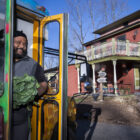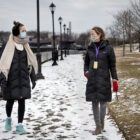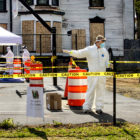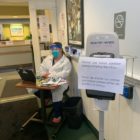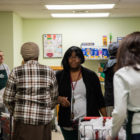The Healing Powers Of The Great Outdoors
|
When Herb Virgo spends time on the trails in Hartford’s Keney Park, he feels different. There’s a “heightened sense of wellbeing, a feeling of connectedness,” he said of spending time outside at the nearly 693-acre park in Hartford’s North End. “There are portions of the park that you can visit that completely make you feel like you’re in another place, in another world. Not only in another city, but in a completely different ecosystem.” Virgo is the founder and executive director of Keney Park Sustainability Project and is dedicated to helping others have similar experiences through the project’s Urban Ecology Wellness Center at Keney Park initiative.
